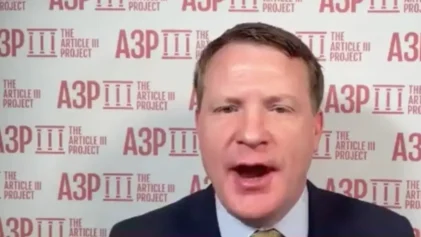
Some opponents of the Cabaret Law have argued that it violates dancers’ free speech rights. (Getty Images)
The 91-year-old law that turned New York City bars into “no-dancing zones” is finally set to be repealed, The New York Times reported.
The Cabaret Law, enacted in 1926, prohibited bars and other D.I.Y venues from hosting “musical entertainment, singing, dancing [and/or] other forms of amusement” without a proper license. The law is largely believed to have originally been used to target racially mixed clubs in Harlem and to patrol speakeasies during the Prohibition era. While the stipulations on musical acts came and went, the ban on social dancing remained — until now.
The archaic law is set to be axed Tuesday, Oct. 31, thanks to a bill introduced by Brooklyn councilman Rafael Espinal, according to the newspaper. Espinal said he’s confident he has the 26 votes needed to pass the legislation.
“It’s over,” he said of the old law.
In a city overrun with bars and other dining establishments, it’s hard to imagine that just 97 of the roughly 250,000 bars in NYC have cabaret licenses. Not only is getting your hands on a license costly, but it must also be approved by multiple agencies, including the New York City Fire Department. Only businesses in areas zoned for commercial manufacturing are eligible to apply, however.
Many locals are glad to finally say good riddance to the outdated law. It was so stringent in its early days that it drew protest from blue-eyed crooner Frank Sinatra, the Times reported. Star musicians like Billie Holiday and Ray Charles were also barred from performing because they both had a drug record.
Espinal argued that although the law hasn’t been aggressively enforced since Mayor Rudy Giuliani’s administration, it has kept club and bar owners “living in fear.” A spokespeson from current Mayor Bill De Blasio’s office said the mayor “strongly supports repealing the law,” but emphasized the need to keep some of the security measures that had been added to the existing law.
In the late 80’s, former New York Civil Liberties Union director Norman Siegel also sought to strike down the Cabaret Law but was unsuccessful. He filed a lawsuit in state court arguing that it violated dancers’ free speech liberties. “Hallelujah to that!” Siegel said to news of the law possibly being repealed. “It was used periodically to be very repressive of free speech rights.”
Opponents of the law have highlighted its negative effects, arguing that it drives dancers from safe, regulated social spaces into potentially dangerous underground venues. John Barclay, owner of the Bossa Nova Civic Club in Bushwick, recalled the devastating Ghost Ship warehouse fire in Oakland, Calif., that claimed the lives of more than 30 young party-goers.
“When we stop people from dancing, they go straight to these warehouses,” Barclay said. “People haven’t stopped dancing, they’re just dancing in these extremely unsafe, unregulated environment.”
He also addressed concerned raised by local community boards, noting that there are already departments and regulations in place to monitor noise and fire hazards social venues.
“It’s hyper-regulated,” Barclay added. “The only thing we’re asking is to move our bodies rhythmically. That’s it.”


